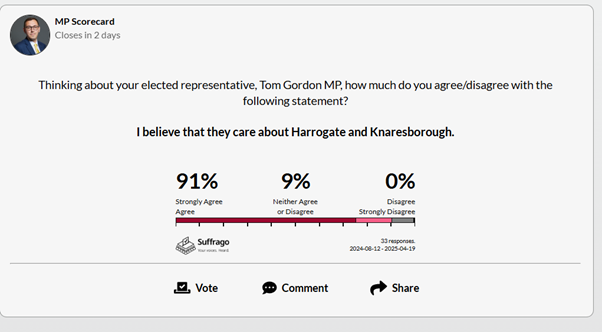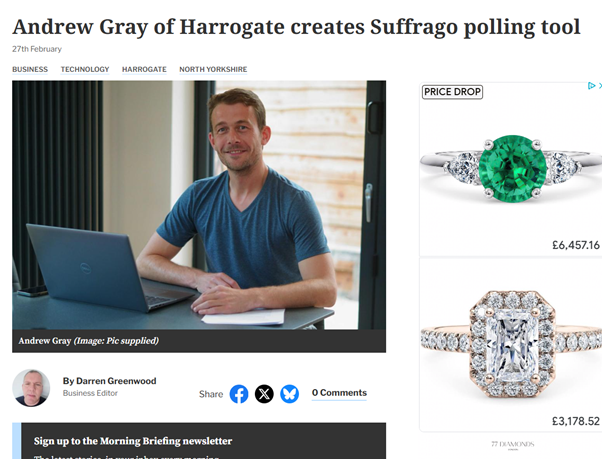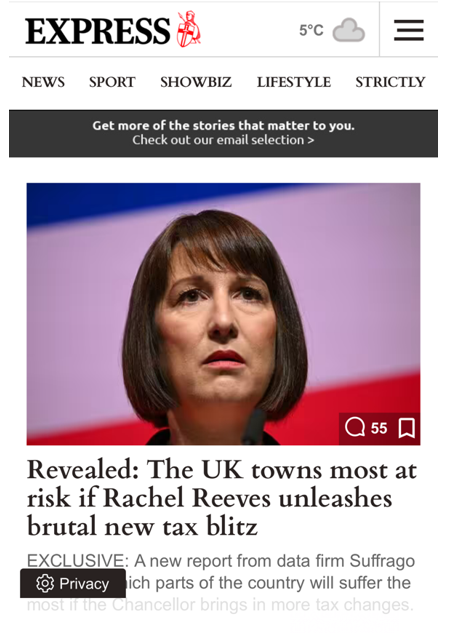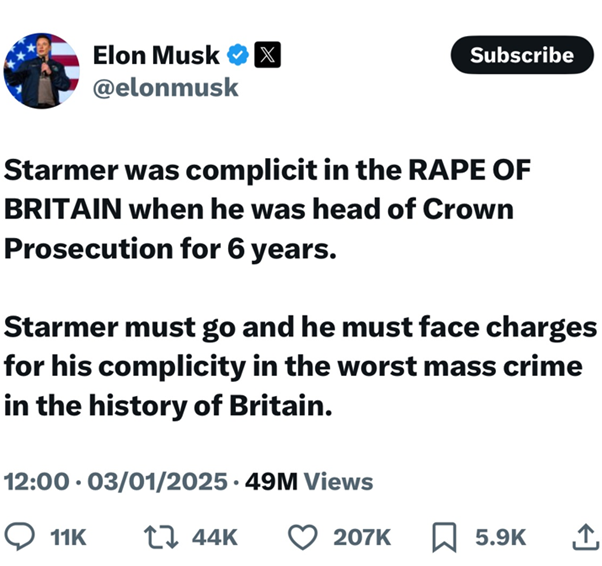Welcome to the world: The Crowd Wisdom Project!
Spawned from my passion for, and frustration with, standard party politics, particularly local party politics, 2022 sees me launch the CWP. Founded as a birthday present to myself in 2020, had my health not been so topsy-turvy in 2021, CWP would have launched six months ago.
CWP springs from my prediction (which must be a borderline future fact) that the way we vote today – with a pencil and paper in a voting booth – will modernise. With bank branches closing, so that most people – regardless of age – now do their banking online, voting – the last vestiges of a bygone era – will – must! – change.
The recent election for the Police, Fire and Crime Commissioner in North Yorkshire witnessed a shameful 13.5% turnout. The victor – who remains a councillor twice over AS WELL AS BEING the Police, Fire and Crime Commissioner – secured circa 3.5% of the possible votes. This is not a mandate: this is a stain on our democracy.
My hope for the CWP is that, in a small way, CWP nudges us towards a fairer, more consensual system of decision-making.
So, what is the Crowd Wisdom Project?
CWP – run through the not-for-profit company, Consensus Politics Limited (by guarantee, not by shares), uses open source, copylefted machine-learning technology – Polis – to run online conversations. These facilitated conversations are living, breathing, thinking affairs, unlike all other survey tools before it. Polis has been used to seismic effect in Taiwan, revolutionising their decision-making, whilst quelling antagonism. (Taiwan certainly has much to teach us about responding to a pandemic.)
Polis was created by some altruistic geniuses at the Computational Democracy Project in Seattle, led by Colin Megill. My hope is that I contribute to the development of, and awareness of, Polis – a tool of enormous potential.
Polis allows all voters to anonymously suggest statements and for all voters to vote on all statements. Polis then finds the consensus points and the cohorts within a group of people. Polis allows shy people (like me, believe it or not) to ventilate their thoughts. Social media works by pouring petrol onto disputes: whereas Polis is interested in the best ideas, not the ideas most shouted about.
When a Polis conversation is over, transparent organisations send the detailed reports to the voters. Of course, organisations don’t need to adhere to the discovered consensus points, but if they do, they know that the issue has been fully explored and that the best ideas have come to the fore.
With CWP, I offer my time, expertise and resources to environmental groups – at zero cost to them – to help them to find the best ideas and help build consensus, and compromises, around these positions. With New Year’s Day being the hottest on record, I fear that this limited effort is too little, too late. To save the planet we all need to make dramatic compromises in how we live: Polis could help us to find those compromises.
CWP will also help community groups at the half the cost we charge businesses (business being charged £150 per Polis). For business, as I have found with my law firm, anonymous Polis conversations work very well for navigating tricky issues such as Covid risks, as well as for planning for future business strategy. I also believe that Polis’ anonymous modus operandi could work well for improving the mental health of a workplace.
I have always been obsessed with the power of good ideas: what CWP does best is to unearth the finest ideas. Humans have it within us to solve all human-caused problems. With my health uncertain (and isn’t this so for us all?), I want to be as potent as I can be in 2022. Wish me luck!
And if you know of any business, environmental group, community group or political group who are brave enough to try the very best of technology, please give them my details.









